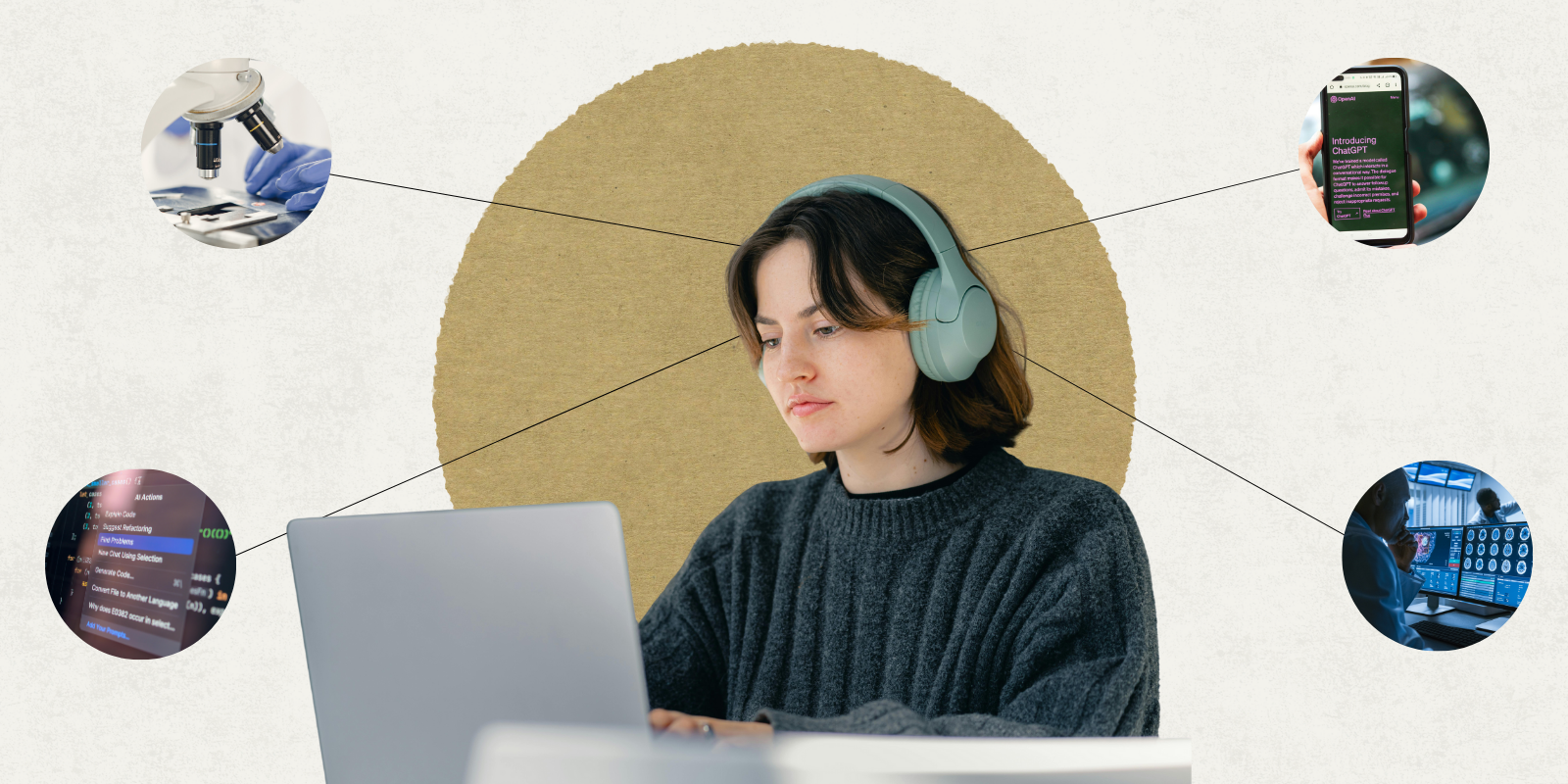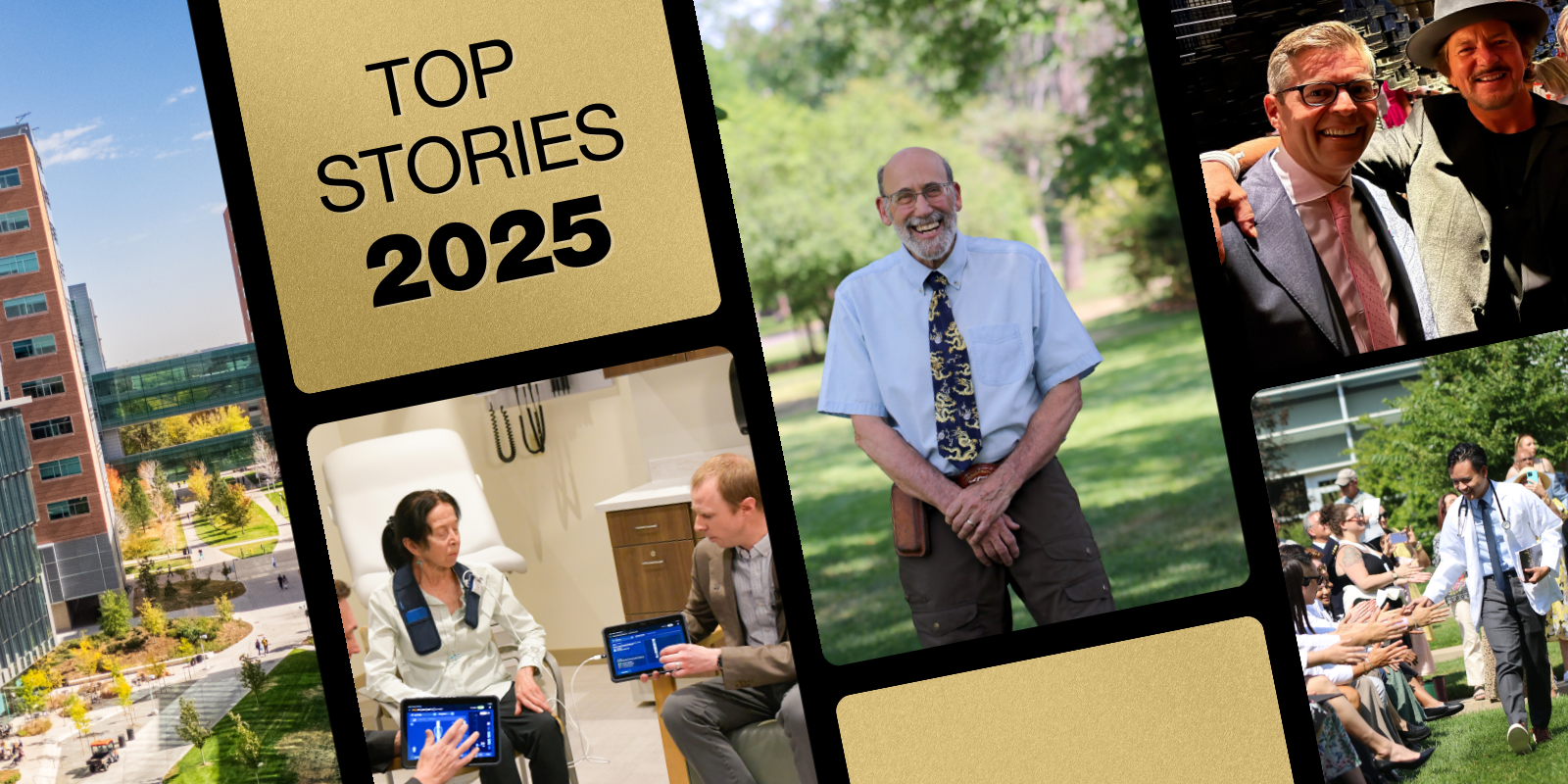Following years of hard work and perseverance through unexpected challenges, David Duarte-Corado is about to accomplish a childhood dream: Graduating from the University of Colorado School of Medicine and becoming a doctor who represents and cares for traditionally underserved populations.
Duarte-Corado grew up in Aurora, just a few blocks away from the CU Anschutz Medical Campus. His interest in medicine began in elementary school when he served as a translator at medical appointments for his Spanish-speaking parents, who had immigrated to the United States from Guatemala.
“I was always amazed by these health care providers being in a position to give advice and have people trust them to help improve health outcomes,” he says. “That was a big motivator for me to become a doctor, because from a young age, I noticed the barriers. I knew I shouldn’t be an elementary school kid telling my parents what their doctors are saying. I had this desire to be a resource for others.”
He also wanted to make the most out of the sacrifices his family made immigrating to the U.S., saying his parents always underscored the value of education. As Duarte-Corado pursued his dream, he continually noticed gaps in medical care and resources for Spanish-speaking people.
“As I kept getting older, I saw there was no one who looked like me. I want to change that, and I also want to show my community that we can do this. We can be doctors,” he says. “We need people to address the underrepresentation in medicine.”
That’s why Duarte-Corado is thrilled to be staying in the community, as he will join the CU Anesthesiology Residency Program after his graduation in May.
“Colorado has really been the place that gave me these opportunities, so I feel I owe a lot to this community,” he says. “It’s the dream program of where I want to be.”

David Duarte-Corado, center, celebrates his placement in the CU Anesthesiology Residency Program on Match Day in 2024.
Persevering through the challenges
The path to get into medical school was not easy. After Duarte-Corado graduated from the University of Colorado Colorado Springs in 2017, he took the Medical College Admission Test and did not get the results he wanted. He spent another year studying, re-took the exam, and applied to medical schools.
To his disappointment, he did not get into a medical school, but he remained determined and joined the Post-Baccalaureate Program at CU Denver. He also worked in an infectious diseases lab, conducting pre-transplant testing, and even spent a semester working at his former middle school.
“I did a little bit of everything during that time, trying to enhance my application,” he says. “It was a three-year gap, and then I was finally accepted. CU was the only program that gave me an opportunity. I didn't receive a single interview besides CU, so I owe everything to CU and the Denver community.”
Duarte-Corado was finally able to begin his medical school training in 2020, when a new challenge presented itself — navigating COVID-19.
Having to take classes remotely was an isolating and difficult experience both academically and socially, he says. Once in-person learning resumed, it was both exciting and nerve-wracking as Duarte-Corado finally got to have more interaction with his classmates.
“I realized other people were learning and feeling a similar way as I did, and I wasn’t as isolated as I had previously felt,” he says. “It was a bump in motivation, realizing we’re all getting through this together.”
When he reflects on his accomplishments over the past four years of medical school, there is one personal challenge that stands out the most — overcoming his imposter syndrome.
“I always suffered from imposter syndrome from day one of being here, so for me, just passing an exam made me feel like, ‘Oh my gosh, I can do this,’” he says.
Initially, as Duarte-Corado was beginning the process of finding his residency match, he was worried he would have a similar experience as he did when applying for medical school.
“As the interviews started coming in, that was a huge accomplishment because it showed that I found a way to make myself stand out among these really competitive applicants,” he says.

David Duarte-Corado, far left, with friends and classmates at the CU Anschutz Medical Campus in October 2020.
The power of representation and mentorship
Among Duarte-Corado’s proudest moments in medical school have been his interactions with Spanish-speaking patients.
“I was that bridge in my family, and now I get to do it for patients,” he says. “I can feel the difference it makes for patients, because when they’re getting a slew of information in English or from an electronic translator, such as an iPad, they often have concerns they won’t bring up. But when they see me, and I speak Spanish, their demeanor completely changes.”
Duarte-Corado got involved in the Latino Medical Student Association (LMSA) when he started medical school. During the COVID-19 pandemic, the student group and a then-faculty member, Carlos Franco-Paredes, MD, went out into the community to give vaccines to underserved populations in Denver.
“To actually be out there, in the communities — that was special for me,” he says.
The LMSA also organized a high school outreach program, where medical students visited high schoolers who are potentially interested in medicine. Through that program, Duarte-Corado visited his former high school to speak with about 30 students.
“We shared our stories, trying to show them that it is doable. It’s hard, but you can do it,” he says. “We had the goal of educating them on the medical school process, and I think the big thing was showing them there are people who look like us in medical school.”
Being a mentor to others is a long-term mission for Duarte-Corado, as he wants to help others just as he has been helped. One of his mentors, Harley Rotbart, MD, a CU School of Medicine professor emeritus, has gone out of his way to offer support, he says.
“With my imposter syndrome, I couldn’t share that with people I was working with at the hospital, but I felt safe with him. He went out of his way to meet with me and say that everyone feels this way,” Duarte-Corado says. “He told me I could do it, and I am meant to be here. He’s just been amazing, and he’s going to put on my hood at graduation.”
Duarte-Corado’s biggest piece of advice to people interested in attending medical school is to be willing to be vulnerable.
“Medicine is this challenging place, because you want to look competent in front of so many people,” he says. “But when I gained the confidence to be vulnerable in professional settings, that’s when I gained the most out of the experience. You must be OK with being wrong and asking questions.”
Although his medical school journey has been long and challenging at times, Duarte-Corado says it has been rewarding and fulfilling.
“I can only describe it as a dream come true,” he says about graduation. “It fills my heart with joy because it paid off. My family’s sacrifices have been worth it. For everyone who has taken the time to mentor me and give me an opportunity to learn from them, it's fulfilling to me that I can say I made the most out of what everyone has given me.”



